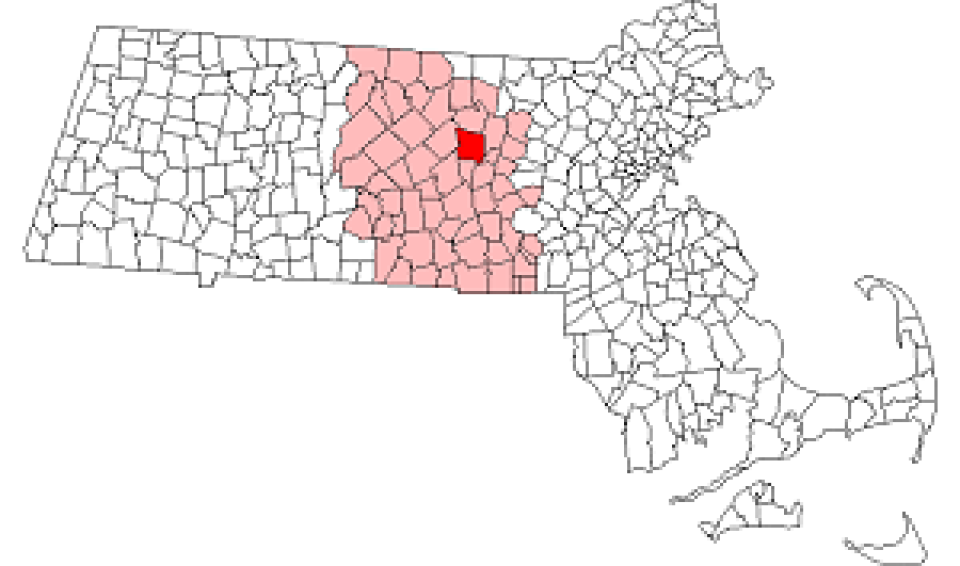
Fast, affordable Internet access for all.

Quincy, Massachusetts is moving full speed ahead on a long-percolating plan to bring faster and more reliable broadband to a community long neglected by regional telecom monopolies.
If successful, the resulting open access fiber network should dramatically boost competitive options in the city, driving down costs for what many view as an essential utility.
After five years of debate and planning, Quincy officials say they’re getting closer to launching a city owned open access fiber network that will provide a backbone for city services, as well as a major infusion of long overdue broadband competition citywide.
Quincy Ward 3 Councilor Ian Cain told ISLR that the city is planning to launch trial deployments in Merrymount and Quincy Point during the next few months. The city has long worked with Entrypoint networks as a technical consultant and project financial planner, and city officials are expecting an engineering and feasibility study from Tilson within a matter of weeks.
RFP Coming Soon
“We're intending to bring the request for financing before the council before the end of session, which is at the end of June,” Cain said.
"We'll be putting out an RFP for the open access component of the project soon as well. We hope to fund the project through the city council before the summer, and then ideally we would start construction in the fall."
The initial pilot project will be funded by a general obligation bond. City leaders stated Merrymount and Quincy Point were selected both with an eye on socioeconomic diversity, and because the city was certain they’d see a relatively high adoption rate.
"Quincy Point in particular has a lot of economic and cultural diversity, and I think that's really important to emphasize as we move forward," Ward 2 City Councilor Anthony Andronico said of the city’s effort. "Quincy Point and Merrymount will have an opportunity to see what works with this program, what we can improve upon and help expand it to the whole city.”
Representing 26 towns across Massachusetts, from Cape Cod to Chelsea, an informal group of mostly town officials have formed the Massachusetts Broadband Coalition in search of a way out of a broken broadband market to ensure everyone in their individual communities has access to high-speed Internet.
The newly-formed coalition has recently started to meet monthly to share information about what kind of alternatives there might be, or could be, to the big cable monopoly provider in their towns.
Questioning Monopoly Rules Without Reinventing the Wheel
The coalition, which held its first meeting in January, was convened by Robert Espindola, Fairhaven Selectmen and the board’s liaison to the town’s broadband study committee. And though the coalition is “in its infant stages,” as Espindola recently shared with ILSR, one common theme has emerged from each participating member.
“No doubt the common theme is: there’s no competition,” he said. “That’s how it started in Fairhaven for us. When we were negotiating our (franchise) agreement with Comcast, people in the community were asking: ‘why can’t we get competition?’”
When we first came together it was really more just to learn from each other, what each community was doing. And we wanted to see if we could find ways to work more efficiently and not reinvent the wheel.
Indeed, communities across the nation have set out to tackle local connectivity challenges head-on with a community broadband approach without having to reinvent the wheel. Some have built, or are building locally-controlled, publicly-owned open-access fiber networks to create the conditions for competition. Other cities and towns are building, maintaining, and operating their own successful municipal broadband networks. While still others have opted to enter into a public-private partnership with an independent ISP to build out a community-wide network.
Public-Private Partnerships Come into Focus
The U.S. Treasury Department announced this week the latest cohort of states approved to receive money for broadband infrastructure from the American Rescue Plan’s $10 billion Coronavirus Capital Projects Fund: Massachusetts, Michigan and Wisconsin.
“Together, these states will use their funding to connect more than 91,000 homes and businesses to affordable, high-speed Internet,” according to the Treasury’s press release.
Louisiana, New Hampshire, Virginia, and West Virginia were the first states approved to receive CPF funds in June; followed by Kansas, Maine, Maryland, and Minnesota in July; and Connecticut, Indiana, Nebraska, North Dakota, and Arkansas in August.
The latest tranche of CPF funds totals a little over $435 Million with Massachusetts approved for $145 million to fund new broadband infrastructure; $250.6 million for Michigan; and $40 million for Wisconsin.
A virtual press event was held on Thursday announcing the awards, led by Gene Sperling, Senior Advisor to the President and American Rescue Plan Coordinator; Jacob Leibenluft, U.S. Treasury Chief Recovery Officer; U.S. Sens. Ed Markey of Massachusetts and Debbie Stabenow of Michigan; Congressman Dan Kildee of Michigan; and Chairwoman of Wisconsin’s Public Service Commission Rebecca Cameron Valcq.
Massachusetts
In Massachusetts, the funds will be used for the Commonwealth’s Broadband Infrastructure Gap Networks Grant Program. The state estimates that will be enough to connect 16,000 households and businesses, which represents 27 percent of locations in the state that lack high-speed Internet access.
Sen. Markey spoke to the importance of high-speed Internet connectivity and how it touches nearly every aspect of day-to-day life:
After years of discussing the possibility of building a city-wide municipal broadband network in the face of resistance from the city manager, the city of Cambridge, Boston’s next-door neighbor, is now getting serious about moving forward.
Followed by a budget stand-off in the spring of 2020 with City Councilors that brought the issue to a head, City Manager Louis DePasquale finally relented to the possibility being pushed by Upgrade Cambridge, a citizen-led group organized in 2018 to advocate for municipal broadband.
In October, the city that is home to MIT and Harvard University hired the consulting firm CTC Technology & Energy to conduct a comprehensive assessment of the digital landscape and present various business models Cambridge could pursue to bring its residents ubiquitous, reliable, and affordable high-speed Internet service as an alternative to the monopoly offerings of Comcast and Verizon DSL.

While Upgrade Cambridge founding member Roy Russell acknowledged DePasquale’s initial reluctance, he credits the soon-to-be-retiring city manager for coming around to the idea.
“With the pandemic and the money the federal government has supplied (for expanding access to broadband), he (DePasquale) has really stepped up,” Russell said when we spoke with him last week.
Comprehensive Assessment Underway
As communities across the Commonwealth of Massachusetts are at various planning stages in laying the groundwork to build their own municipal broadband networks, a rural Bay State town about 50 miles west of Boston has moved past the planning phase and is now offering municipal fiber-to-the-home (FTTH) service.
In Sterling (est. pop. 8,000) – the town that lays claim to Mary Sawyer Tyler, said to have inspired the “Mary Had a Little Lamb” poem – the town’s municipal utility is building out its aptly named Local Area Municipal Broadband (LAMB) network.
The project was initiated more than five years ago as a new division within the century-old Sterling Municipal Light Department (SMLD). As one of about 40 of the state’s 351 towns and cities with its own municipal electric utility, SMLD was awarded a $150,000 state grant to help finance the construction of a 23-mile regional I-Net ring in 2020. A year later, LAMB lit up its first residential customer in April of 2021.

Following an incremental approach, earlier this year, the LAMB added its 50th subscriber as construction crews are on track to build out a town-wide fiber network by the end of 2024.
Connecting with Nearby Towns
Like other communities across the nation with an established municipal utility, from a design and engineering standpoint, it was a relatively easy leap into broadband for SMLD, which currently supplies electricity to more than 3,700 residential, commercial and municipal customers.
It’s official. Falmouth, Massachusetts has established a legal framework, a telecommunications utility, that is a key milestone in a local effort to bring fiber-to-the-home (FTTH) Internet service to this seaside community of approximately 32,000 famous for being home to a world-class marine science community as well as a popular summer vacation destination.
In the fall, Town Meeting voters voted 175-13 for the creation of the utility called a Municipal Light Plant (MLP). The law, however, requires two separate ‘yes’ votes with a 2/3 majority within a 13-month period. That second vote came earlier this month, when Town Meeting voters said “yes” to establishing an MLP by a vote of 159 to 25, well in excess of the 2/3 majority that was needed.
It allows Falmouth to move to the next step – figuring out the financing – which would allow Falmouth to join the growing ranks of communities in the Bay State (and be the first of 15 Cape Cod towns) to have undertaken municipal broadband projects over the last several years.
Voters Reject Opposition Arguments
Though a small group of municipal broadband critics strenuously argued in opposition to the formation of an MLP by raising a number of thoroughly debunked claims about locally-owned networks, ultimately Town Meeting voters were more persuaded by the experiences of resident’s such as Marilois Snowman who owns a digital marketing agency in town.
Cities and towns all over Massachusetts are looking for alternatives to the big incumbent Internet Service Providers in their communities as citizens across the Commonwealth have grown weary of the high-cost, second-rate Internet service – and lack of competition – that plagues markets dominated by monopoly providers.
Gov. Charlie Baker and state lawmakers have yet to settle on how much of the Commonwealth’s American Rescue Plan funds should be devoted to expanding access to affordable and reliable high-speed Internet service in the Bay State. Meanwhile, a growing number of local leaders and community advocates are positioning themselves for the possibility of creating municipal telecommunications utilities to build publicly-owned broadband infrastructure.
Falmouth Leads the Way on Cape Cod
On Cape Cod in the Town of Falmouth (pop. 32,517), the citizen-led non-profit FalmouthNet is making major strides in bringing town-wide fiber-to-the-home Internet service to the second-largest municipality on the southeastern Massachusetts peninsula. (Full disclosure: both Sean Gonsalves and Christopher Mitchell serve as FalmouthNet Advisory Board members).

Having completed a feasibility study last year that laid out a detailed market analysis and financial forecast for building the estimated $55 million town-wide fiber network, FalmouthNet recently announced it has signed a contract with Tilson, a telecom construction and engineering firm based in Portland, Maine, to design the network.
Broadband was on the ballot as voters went to the polls for Election Day in many areas. Here’s a quick run-down of what happened.
Colorado
The Colorado state law (SB-152) that bans local governments in the Centennial State from establishing municipal broadband service suffered another defeat at the ballot box. Since the law was passed nearly two decades ago, more than 150 Colorado communities have opted out. That number continues to grow and we can now add the town of Windsor to the list of municipalities in the state who have voted to restore local Internet choice.
At the polls yesterday, 77 percent of Windsor voters said yes to Ballot Question 3A, which asked “shall the Town of Windsor, without increasing taxes by this measure, be authorized to provide high-speed Internet services (advanced services), telecommunications services, and/or cable television services … either directly or indirectly with public or private sector partners?”
Springfield prides itself as a “City of Firsts.” Located in central Massachusetts, 90 miles west of Boston, Springfield is where the nation’s first armory was located and where the first U.S.-made automobile was built. It’s also the birthplace of basketball and Theodor Geisel, better known by his pen name “Dr. Seuss.”
Last month, the city took its first step to explore whether it will become the first of New England’s five biggest cities to build a municipal fiber-to-the-home network.
Channeling Dr. Seuss, who famously wrote “only you can control your future,” city officials are in the process of issuing a Request for Proposals to conduct a feasibility study to explore if Springfield (est. pop. 154,000) will control its digital future by meeting “the growing demand for reliable and affordable Internet service.”
According to a press release issued by Springfield Mayor Domenic Sarno’s office, “the study would review such items including but not limited to the current Internet equipment and infrastructure in place across the city, gauge public interest, provide a cost analysis on infrastructure investment, review and assess maintenance cost, possible revenue sources, and exploring potential public/private partnerships and collaborations for the benefit of consumers.”
Pandemic Exposed Digital Chasm
The city is currently served by Comcast Xfinity and Verizon DSL. But, according to City Councilor Jesse Lederman, a leading advocate for better broadband in Springfield, the pandemic exposed a growing digital divide in the city while surrounding communities are increasingly being served by fiber networks.
Between the U.S. Treasury clarifying that American Rescue Plan (ARP) funds are eligible to be spent on middle-mile infrastructure and the U.S. Senate’s proposed infrastructure bill directing NTIA to establish a $1 billion grant program to support the deployment of middle-mile networks, federal assistance aiming to improve middle-mile access is imminent.
Cities and states across the U.S. have already committed portions of their federal relief funds to boost access to middle-mile infrastructure. City officials of Brownsville, Texas approved a plan in July to use $19.5 million of ARP funds to construct a 95-mile-long middle-mile broadband network. In Suffolk, Virginia, city council members set aside $5 million of relief funds for the first phase of a regional project to construct an open access, middle-mile fiber ring.
The Governor and State Legislature of California recently settled on a $3.25 billion agreement to build statewide public middle-mile infrastructure, “one of the largest state investments in public fiber in the history of the United States,” reports Ernesto Falcon for EFF.
The sudden surge in middle-mile investment may bring about confusion over what middle-mile infrastructure is and give rise to questions over the necessity of such investments. A new fact sheet from the California State Association of Counties (CSAC) clarifies commonly held misbeliefs about investing in public middle-mile infrastructure. Read CSAC’s new fact sheet here [pdf].
Investments in Public Middle-Mile Needed to Confront Monopolies